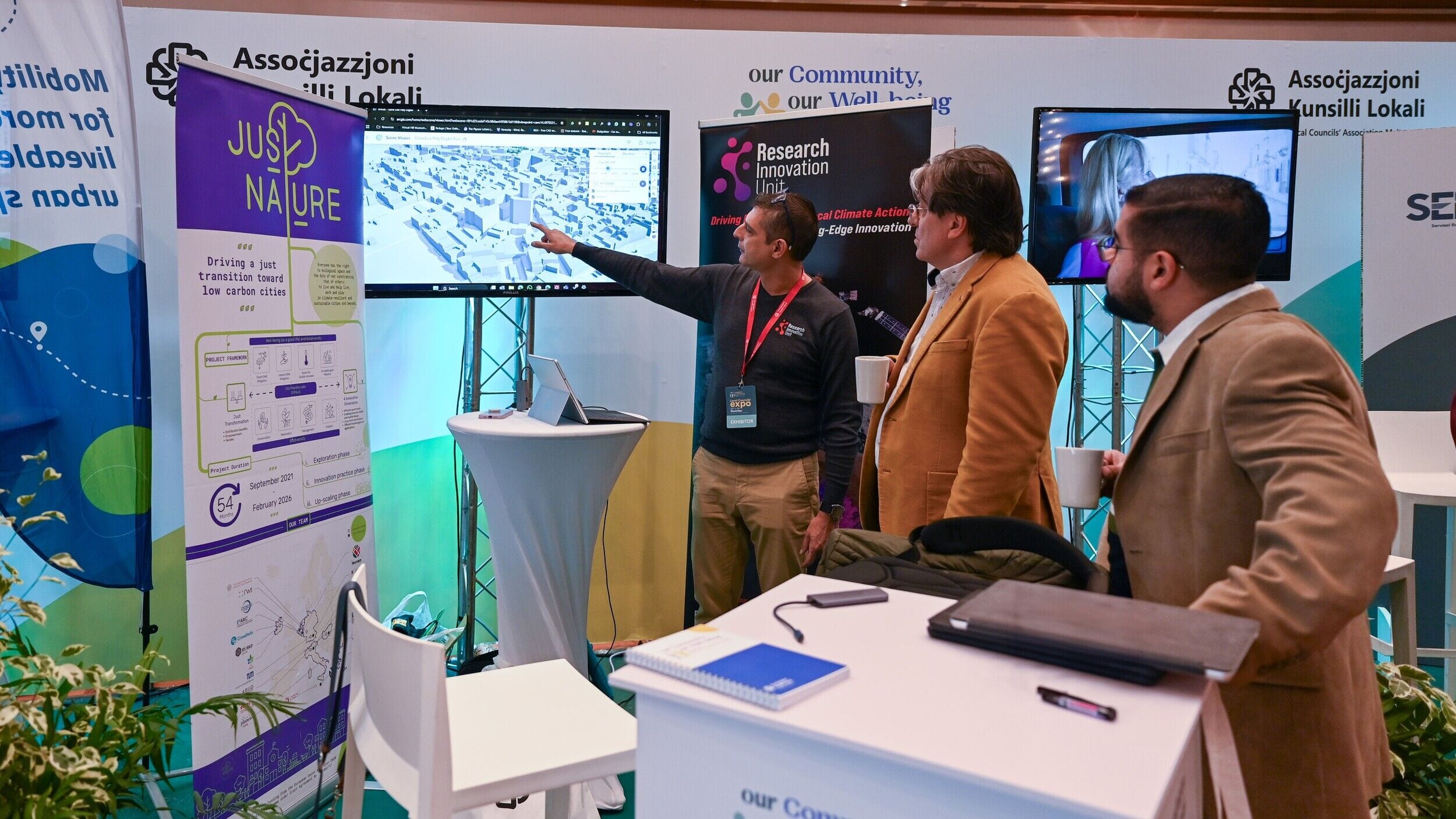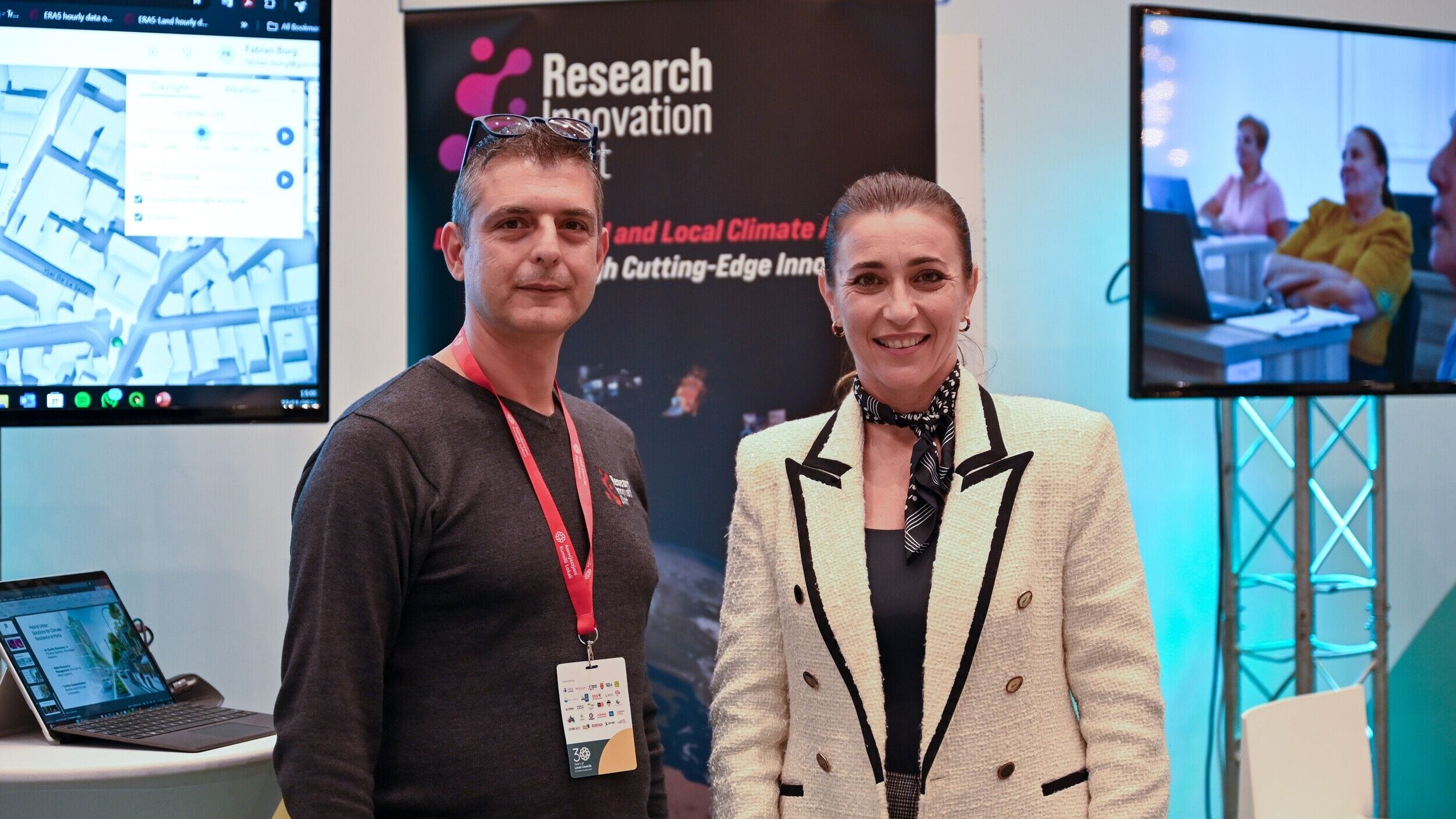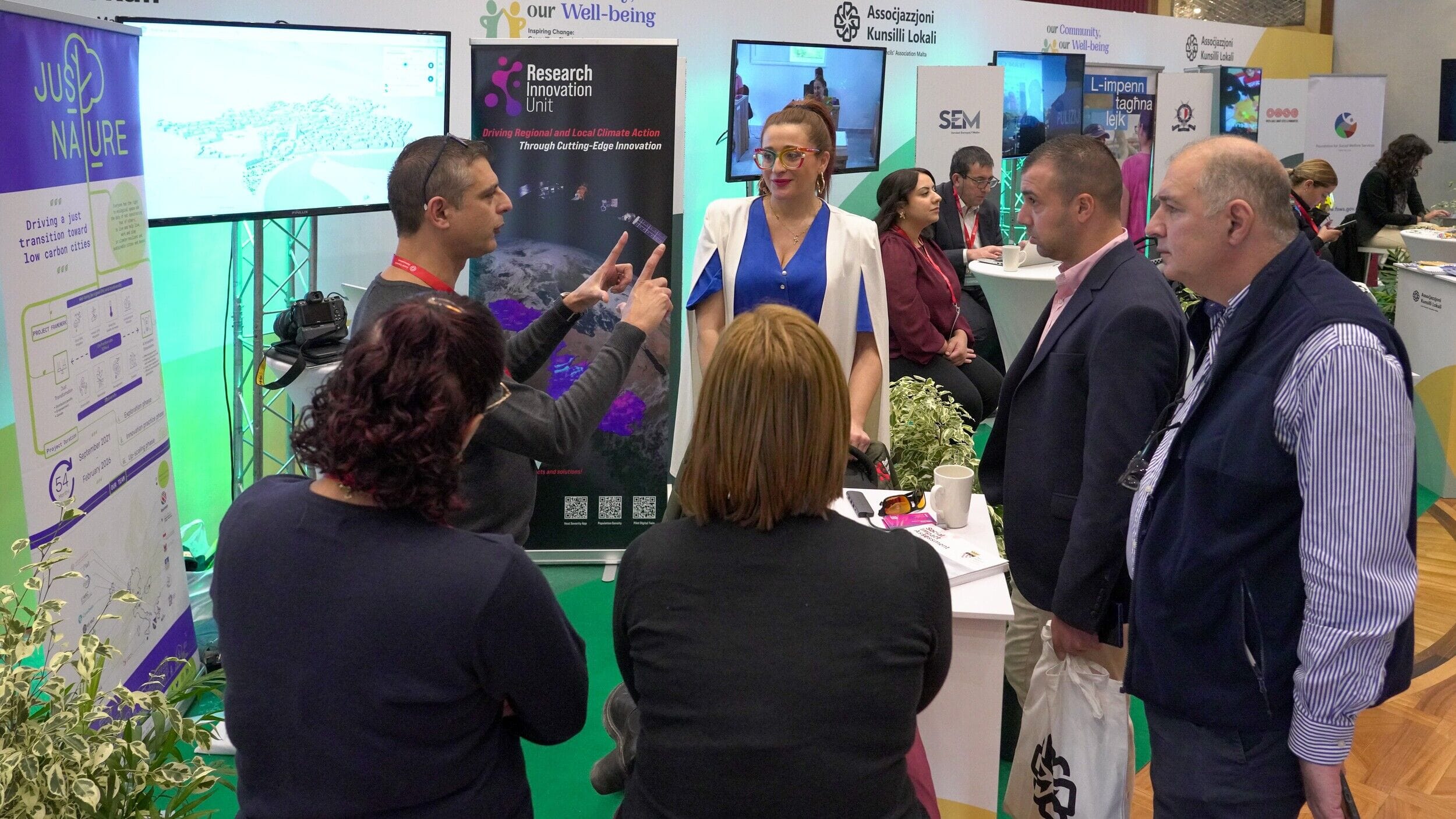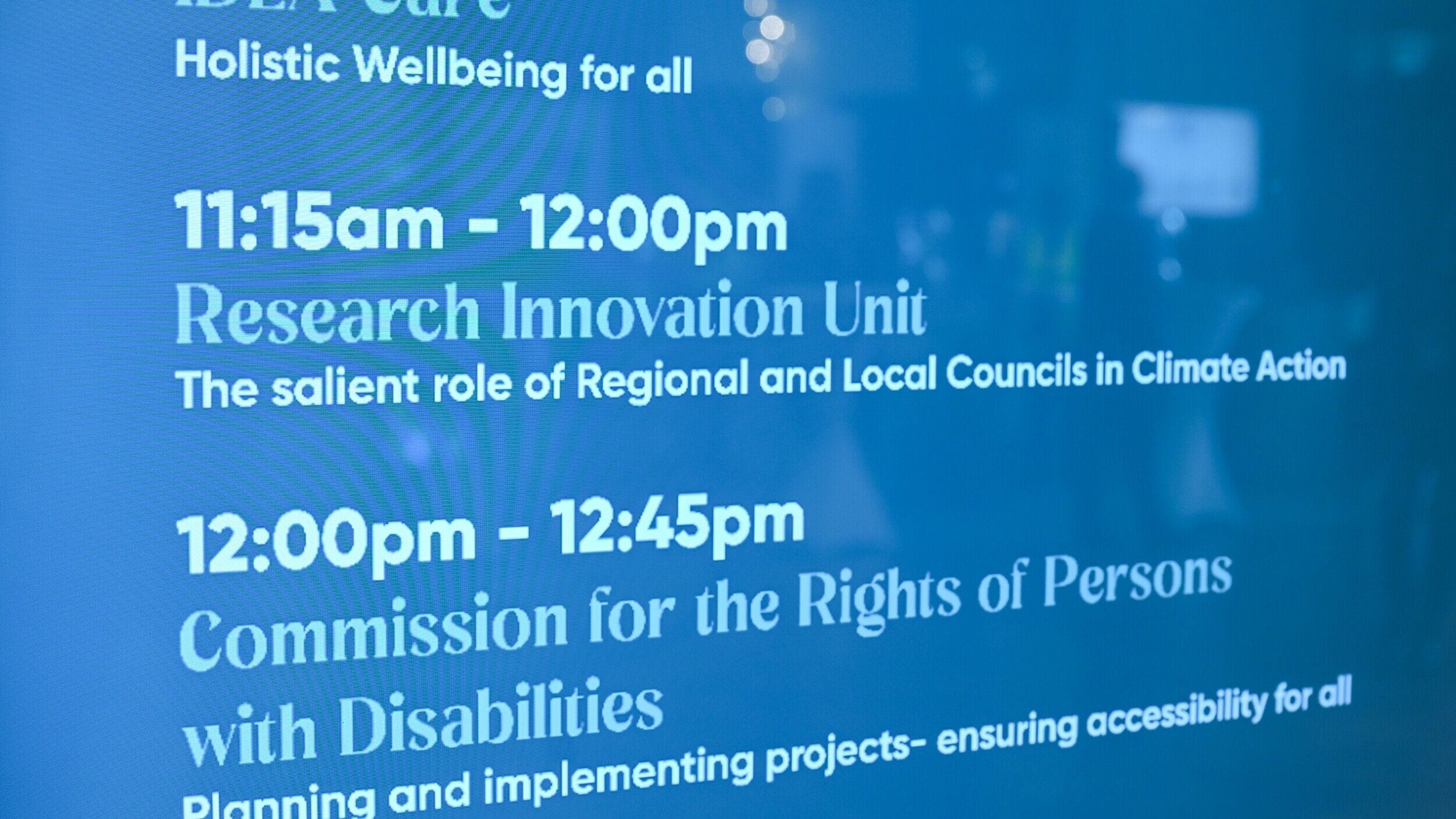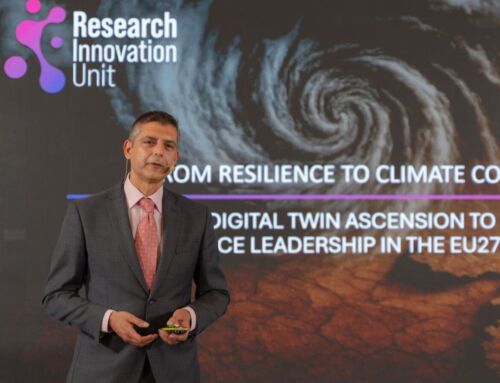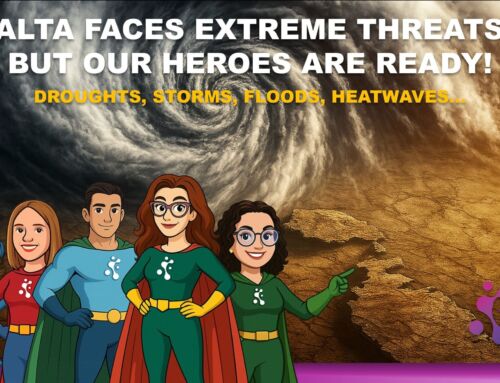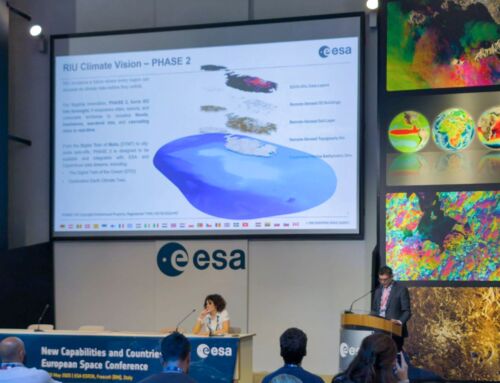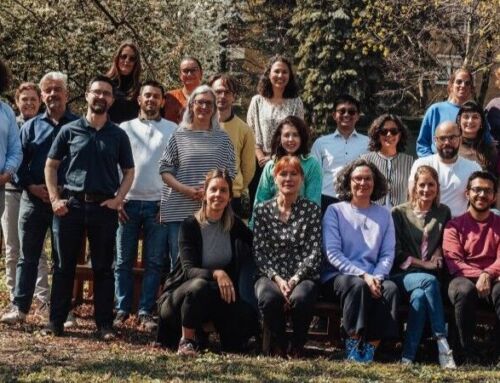The Local Councils’ Expo, organised by the Local Councils Association on 22–23 November 2024, offered an exceptional platform to spotlight the pivotal role of local governance in driving climate resilience and sustainable community development. Representing the Research Innovation Unit (RIU), I was privileged to lead two workshops showcasing RIU’s ongoing innovation in climate action. Focusing on key topics such as the El Niño–Southern Oscillation (ENSO), the EU Mission Adaptation to Climate Change, the Digital Twin project, and hybrid climate solutions, our sessions underscored the RIU’s commitment to empowering local councils with actionable insights and tools.
The Role of the Research Innovation Unit (RIU)
The RIU, a specialised local government unit, continues bridging the gap between scientific research and regional policymaking. Born from the Gżira Local Council and now serving a broader spectrum of regional councils, the RIU’s mission aligns with Article 33(1)q of the Local Councils Act. This mandate enables the unit to pioneer innovative responses to the pressing challenges of climate change while fostering community-centric adaptation.
Key Themes Presented at the Expo by RIU
El Niño–Southern Oscillation (ENSO) and Climate Extremes: our workshops explored the far-reaching impacts of ENSO, a key driver of global climate variability. ENSO’s influence on atmospheric circulation has manifested locally through extreme events such as Storm Helios and the Cerberus heatwave, which the latter set record-breaking temperatures across Malta. Drawing on longitudinal data processed by the RIU using NASA/USGS Landsat imagery, we presented compelling analyses of Malta’s Urban Heat Island (UHI) effect. Comparative visualisations of night-time UHI from 2019 and 2023 revealed a stark escalation in thermal stress, driving home the urgency for adaptive urban solutions.
EU Mission Adaptation to Climate Change: in alignment with the EU Mission on Adaptation to Climate Change, we showcased RIU’s integrative approach to climate adaptation. By combining robust data analytics with participatory governance, we underscored the importance of involving regional and local councils in the mission. We emphasised ethical geoengineering and nature-based solutions (NBS) as critical tools for enhancing urban resilience. Practical examples included integrating green walls, thermal insulation, and water-sensitive urban designs harmonised with Malta’s architectural heritage.
Digital Twin Innovation: Powered by MAXAR Precision 3D: a cornerstone of our presentation was the Gżira Digital Twin, powered by MAXAR Precision 3D buildings technology. This high-fidelity virtual model simulates urban environments under varying climatic scenarios, offering regional and local councils a decision-support system for climate adaptation. The low polygon Digital Twin, running on ESRI’s ArcGIS Online platform, demonstrates the intersection of spatial data and policymaking, enabling planners to test interventions such as renewable energy deployment, microclimate regulation, and sustainable urban mobility solutions before committing resources.
Hybrid Climate Solutions: as part of our forward-looking approach, we explored the concept of hybrid climate solutions, which blend advanced technologies with nature-based strategies. Beyond traditional measures, these solutions incorporate innovative systems like air-to-water technology, biochar for carbon sequestration, and air filtration via microalgae reactors.
Central to our efforts is the JUSTNature project, a Horizon 2020 initiative that promotes embedding nature-based solutions into urban planning to enhance resilience, biodiversity, and well-being. At our booth, we exhibited a video documenting the tree inventory conducted in collaboration with Stella Maris College. This event engaged mixed-ability students in mapping and cataloguing urban trees, fostering environmental stewardship and creating a valuable data repository for local councils. The partnership also laid the groundwork for further collaboration at the MOST 2023 Expo, where Stella Maris College served as a stakeholder in advancing the JUSTNature mission. Such initiatives exemplify the project’s ethos of integrating education, community involvement, and scientific expertise to address climate challenges comprehensively.
Engaging Councillors and Empowering Communities
The Expo, themed Our Community, Our Well-being Inspiring Change: Councillors Shaping Stronger, Healthier Communities, provided an opportunity to connect directly with Mayors, Councillors, and stakeholders. Through our workshops, we emphasised the indispensable role of local governance in implementing climate solutions. Practical sessions delved into the application of tools like the Malta Urban Heat Island App, developed by the RIU, which equips local authorities with real-time insights into thermal hotspots and climate stressors.
The Mayors’ and Councillors’ enthusiasm to adopt evidence-based solutions matched their interest in collaborative projects like the JUSTNature initiative and the Digital Twin pilot. Discussions also explored synergies with other stakeholders to create community-driven climate strategies.
Takeaways and Path Forward
The Expo reinforced the growing recognition of regional and local councils as frontline actors in climate action. However, it also shed light on persistent challenges, such as funding limitations and the technical capacity of smaller councils. Addressing these gaps requires a multi-pronged strategy, blending local knowledge with national and EU-level support.
Looking ahead, the RIU aims to expand its Digital Twin capabilities to include the entire Maltese Archipelago and enhance hybrid solutions by integrating adaptive technologies like automated dehumidification systems and community-scale renewable energy pilots. Furthermore, through JUSTNature, we plan to strengthen the role of biophilic design in Malta’s urban landscapes, ensuring that solutions are climate-resilient and socially inclusive.
Reflections on the Expo’s Broader Impact
The Local Councils’ Expo demonstrated how collaboration between research institutions, local governments, and communities can catalyse transformative change. By fostering dialogue and sharing actionable insights, the event paved the way for innovative partnerships and policies prioritising resilience and sustainability.
The RIU remains committed to leading these efforts and serving as the regional and local councils’ innovation hub. As we face the realities of climate change, such forums reaffirm the power of collective action and underscore the need for continued investment in research-driven solutions. Through initiatives like the Digital Twin and JUSTNature, RIU is poised to emerge as a leader in harmonising technology and nature to combat climate challenges, ensuring a more resilient future for all.


